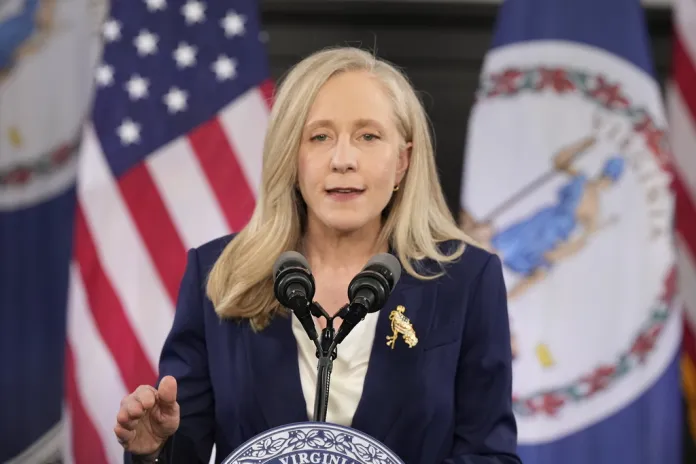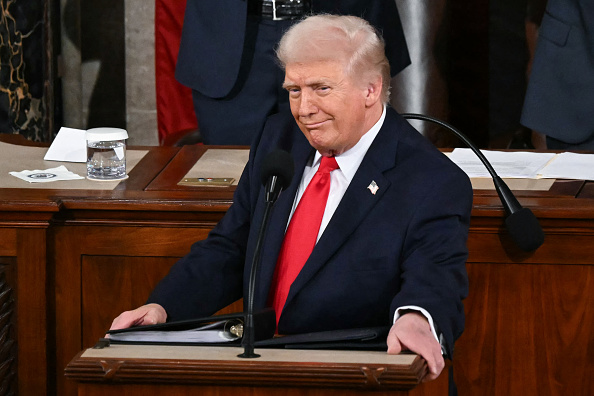Trump’s second chance: He’s supposed to be here – Washington Examiner
The article discusses Donald TrumpS political comeback as he accepted the Republican nomination for the presidency for a third time, a moment marked by the statement, “I’m not supposed to be here.” Despite facing notable challenges,including assassination attempts,multiple indictments,and civil actions resulting in hefty judgments against him,Trump has managed to re-establish himself as a formidable candidate.
The narrative outlines how these adversities, rather than hindering his return, have contributed to a renewed political resilience. Unlike his tumultuous previous term characterized by conflicts and drama, Trump’s current campaign showcases more discipline and organization. His team fills key administration positions swiftly, and their ability to handle criticisms during Senate confirmation hearings marks a strategic shift.
Moreover, Trump’s appeal has broadened among various demographic groups, including Latino and black voters, indicating a shift in the Republican base away from customary alignments. The implications of his second-term candidacy are complex, as there are potential pitfalls that arise from his return, especially considering the limits imposed by the Constitution regarding presidential terms.
the article conveys that Trump returns with experience, confidence, and an energized support base, while also highlighting the challenges Democrats may face in countering his resurgence.
Trump’s second chance: He’s supposed to be here
When President Donald Trump accepted the Republican nomination for the White House for the third time, he told the crowd in Milwaukee, “I’m not supposed to be here.” It was a line he repeated often in the weeks following the attempt on his life in Butler, Pennsylvania, which happened just days before the GOP convention.
The hardships Trump endured on his path to returning to the presidency weren’t limited to a pair of assassination attempts, jarring as those words are to write. He was indicted several times across multiple jurisdictions, convicted on 34 felony counts in his native New York, and subject to an FBI raid at his home in Mar-a-Lago. He faced civil action against his vast empire leading to a $454 million judgment against him. He had to appeal efforts to toss his name from state ballots all the way to the Supreme Court, which also ruled on the extent of his immunity from criminal prosecution.
Most of these things are far graver than the political trials that once made him appear destined to join the ranks of one-term presidents, though virtually all of the above problems he dealt with while out of office aided his improbable comeback. Now, Joe Biden, Trump’s successor and now predecessor, will appear on that dubious one-termer list instead. “All political lives, unless they are cut off in midstream at a happy juncture, end in failure, because that is the nature of politics and of human affairs,” Enoch Powell once observed.
Trump appeared to be an embodiment of that rule when the pandemic, a recession brought about as much by the lockdowns as the virus itself, and his own foibles cost him a second term. He placed the blame for his political misfortunes elsewhere, causing him to leave office under the shadow of Jan. 6 and an unprecedented second impeachment. But now he has a second chance, an opportunity to write a different ending to the incredible story of his political life. Will he take it?
WHAT TRUMP HAS PROMISED TO DO ON DAY 1 IN THE OVAL OFFICE
This time around, Trump appears more self-assured. Calmer, quieter. Part of this is unlike in 2017, when Democrats were shellshocked by his upset victory but also openly suspicious of its legitimacy. Even his political opponents respect the accomplishment of his triumphant White House return, whatever they think of him personally. Business leaders dine with Trump in Mar-a-Lago and give money to his inaugural committees. Entertainers who are perhaps not at the Taylor Swift or Beyonce level but are nevertheless hardly C-listers were willing to perform for him.
The 2024 Trump campaign was his most disciplined. His transition team moved with deliberate speed to fill Trump administration positions, in sharp contrast with eight years ago. The leaking, self-destructive feuding, and overall drama have been markedly less this time around. Much credit goes to Susie Wiles, the first White House chief of staff of the second Trump term, who, dating back to the campaign, stayed in the background and kept things rolling.
There is a different feeling emanating from the Senate confirmation hearings of Trump’s Cabinet picks. Not all of those nominees were Republicans out of central casting or people whom the average GOP senator would have chosen. A couple of them, until quite recently, were not Republicans at all. But even the unconventional choices are skilled communicators whose TV chops make them well suited for televised hearings. None of them have been afraid to defend Trump or themselves.
Pam Bondi, Trump’s nominee for attorney general, told Democratic senators she would not be “bullied” by them. Were the party labels reversed, surely this would have been the stuff of “Nevertheless, she persisted” lore. Pete Hegseth, Trump’s once-embattled selection for secretary of defense, stared down what often felt like performative attacks from Democratic interlocutors.
To be fair, some of this is because few of these nominees are relying on the persuasion of Democrats. Sen. Alex Padilla (D-CA), at one point, seemed incredulous that Bondi was not behaving as if she needed his vote. But no one is under the illusion that Padilla’s vote is meaningfully in play. Aside from rare exceptions such as Sen. John Fetterman (D-PA) or the tender moment between Sen. Tammy Duckworth (D-IL) and Secretary of State-designate Marco Rubio, the name of the game is keeping Senate Republicans together. After some early hiccups, so far, so good, though the most difficult test cases have yet to emerge.
Yet Trump is a threat to the Democratic electoral coalition. He flipped heavily Latino border counties and won Hispanic men. For the second election in a row, 1 in 5 black men pulled the lever for Trump. White working-class voters have defected to the point that even the Teamsters leadership has had to take notice. This is no longer the Republican Party of George W. Bush, and while that has repelled some people, arguably including the Bushes themselves, who can be awfully helpful in lower-turnout elections, it has paid some political dividends, too. Republicans have won the national popular vote for the House in the last two elections, even if the resulting majorities were threadbare. Now, they have done so at the presidential level for the first time in 20 years and only the third time since Ronald Reagan walloped Walter Mondale over 40 years ago.
Trump is in an unusual position. He is a second-term president with first-term energy. He has had the experience of being there before and four years to think about what he would like to accomplish. The same is true for many members of his team. But they haven’t all spent the last four years frazzled and working the kinds of hours the White House typically demands. Trump is coming back to the Oval Office with a newly replenished supply of political capital.
The lethargy that normally sets in during the second term suffused the Biden administration before the end of its first. Biden himself dropped out of the presidential race and increasingly retreated from the public spotlight last year. That created a vacuum Trump was eager to fill once elected but prior to his inauguration. This enabled Team Trump to hit the ground running in ways that were unthinkable previously.
This almost unprecedented setup could be the best of both worlds. But it is not without pitfalls. This is Trump’s second term, and the Constitution does not allow him another. (Repealing the 22nd Amendment would require a level of bipartisan consensus that even a successful Trump 2.0 would almost certainly be unable to create.) It won’t be long before members of both parties start thinking about becoming his successor. The midterm elections are just two years away, and Democrats are hoping they can win control of at least one house of Congress.
Democrats could capitalize on these rare political circumstances in other ways. Trump would like to go down in history as a deal-maker rather than a conservative ideologue. The debate late last year over H-1B visas highlighted his flexibility even compared to MAGA populists. There probably are areas in which Democrats could work with him if so inclined.
Senate Minority Leader Chuck Schumer (D-NY) has a relationship with Trump that predates his first term. There have been moments when it seemed that Schumer might extend, or receive, the olive branch. Trump yukked it up with Schumer at the Al Smith Dinner during the 2024 campaign. Some Democrats are currently open to abandoning their Resistance mindset.
Yet the political incentives may be too similar to Trump’s first term for any bipartisanship to take hold. Democrats captured the House, and Trump’s relationship with then-Speaker Nancy Pelosi (D-CA) was too poor to make much collaboration tenable despite the early “Chuck and Nancy” meetings at the White House. From the midterm elections, it was quickly on to the first impeachment and trying to unseat Trump in the upcoming presidential race. Then came the pandemic.
Trump is still Trump. He picks fights, and posts things on social media, that are entirely unnecessary. What is there to be gained from another broadside against “Bird Brain Nikki Haley,” who dutifully endorsed Trump last year, or publicly listing the people whose associates need not apply for administration jobs? (Unlike 2017, it is improbable that Trump’s personnel screeners are unaware of his preferences.)
Trump’s election could be the start of a sustained rightward shift like the Reagan-Bush years in the 1980s. The devastating consequences of left-wing misgovernment in California suggest that possibility could transcend Trump. The resulting mood and a successful administration could set up Vice President J.D. Vance, who is only 40, to succeed him. And Vance, unlike George H.W. Bush, is squarely in the tradition of the man who put him on the ticket.
Or Trump’s presidency can exhaust everyone in two years or less. Part of Trump’s revival was that voters remembered there were things they did like about his first four years in office: a secure border, the eradication of the Islamic State, low unemployment that was accompanied by low prices, and no wars in Gaza or Ukraine. They increasingly came to view the pandemic as an event not totally under Trump’s control and his missteps a consequence of heeding the likes of Anthony Fauci at least as much as defying him, which most of his opponents other than Gov. Ron DeSantis (R-FL) would have done. Trump’s retrospective approval ratings in 2024 were higher than his poll numbers while he sat at the Resolute desk.
There were plenty of things voters didn’t like, however. The first Trump term was an ever-spinning carousel. After a certain point, the ride made many suburbanites sick, and by 2018, they wanted to get off. The country remains deeply polarized, and Trump cannot afford much slippage in his support. Then-Vice President Kamala Harris still managed to win 48.4% of the vote after replacing Biden. House Speaker Mike Johnson’s (R-LA) majority is smaller than ever.
Former House Speaker Newt Gingrich has spoken for years about there being a big Trump and a little Trump. “The big Trump is a historic figure talking about historic ideas. The little Trump gets involved at a personality level,” he said in 2016.
CLICK HERE TO READ MORE FROM THE WASHINGTON EXAMINER
For almost a decade, Trump’s political opponents have responded to his presence on the national stage with a variant of his comments at last year’s GOP convention: “He’s not supposed to be here.” Their impeachments, lawsuits, criminal prosecutions, and imputations of fascistic intent all screamed that point, as did a thousand cable news panels. It was the one message that united the disparate elements of the Democratic coalition last year.
But it wasn’t enough. The voters thought otherwise. Trump is here, yet again. It’s a second chance few former presidents get. Let him make the most of it.
W. James Antle III is executive editor of the Washington Examiner magazine.
" Conservative News Daily does not always share or support the views and opinions expressed here; they are just those of the writer."




